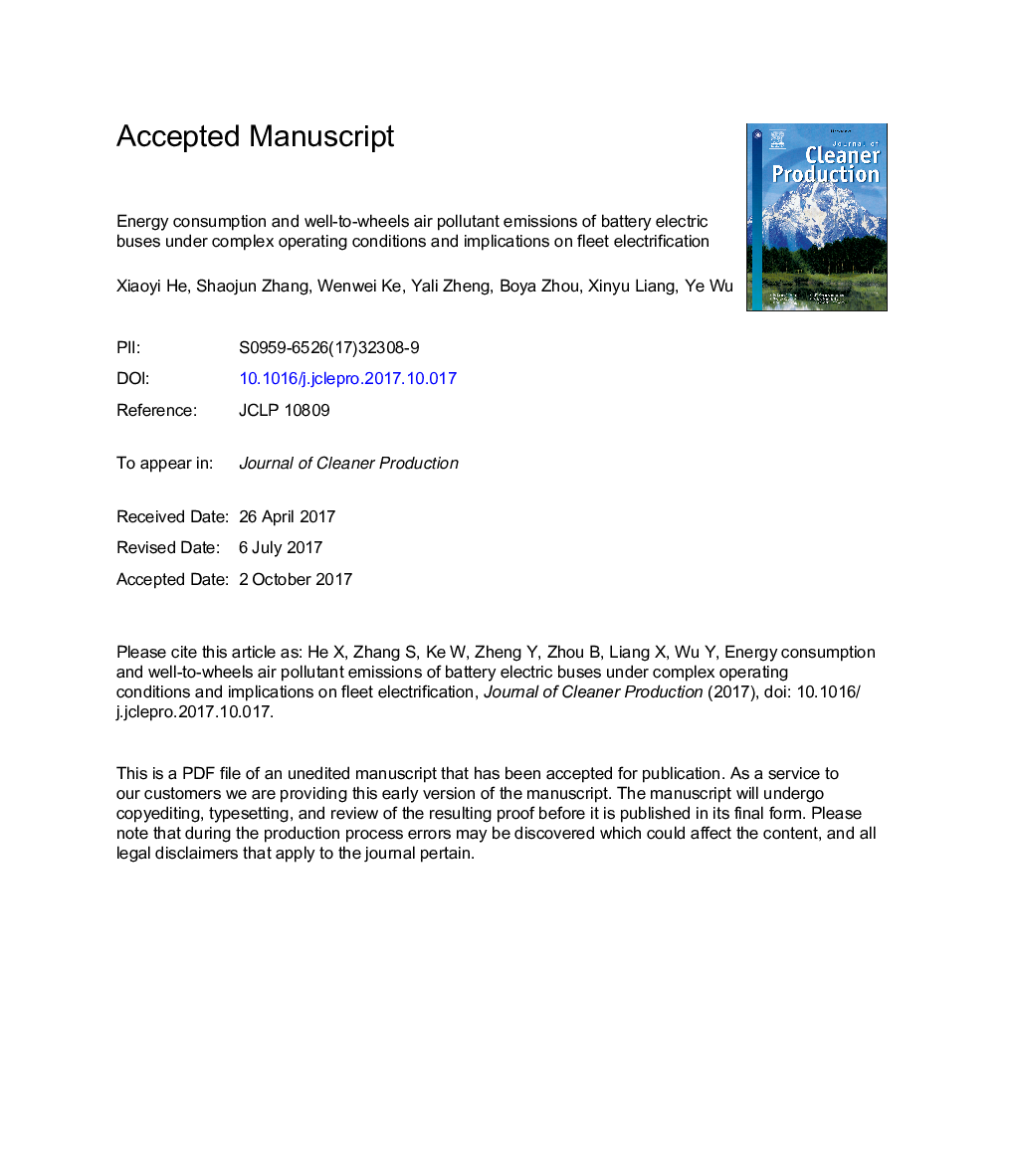| Article ID | Journal | Published Year | Pages | File Type |
|---|---|---|---|---|
| 8100239 | Journal of Cleaner Production | 2018 | 31 Pages |
Abstract
Electrification has been rapidly promoted to transform the energy source for public transit buses. Among all electric technologies penetrating the public bus fleet, battery electric buses (BEBs) dominates the market. Nevertheless, real-world energy consumption (EC) is of great concern, since BEBs are often used under congested conditions that may affect their energy and environmental benefits. This study proposes an operating mode binning method to assess on-road EC and well-to-wheel (WTW) air pollutants emissions of BEBs under complex real-world usage patterns. Second-by-second EC and operating data of two BEBs demonstrated in Macao, China is adopted to establish the EC profiles under each micro modes. Results show that EC value would be below zero in certain operation modes with negative vehicle specific power values, which suggests the regenerative brake system is effectively functioning under deceleration conditions. Average EC are estimated to be 1.7 to 4.1Â kWh kmâ1 for BEB12 and 1.2 to 2.9Â kWh kmâ1 for BEB10 (i.e., vehicle length of 12Â m and 10Â m), respectively, under all operating conditions (i.e., 18 various patterns) by average speed, loading mass and air conditioner usage. The large variation in real-world EC would proportionally affect WTW emissions of carbon dioxide (CO2) and air pollutants from BEBs. When deployed in Macao where non-fossil electricity is relatively abundant, BEB can significantly reduce WTW emissions of nitrogen oxides (NOX) and volatile organic compounds (VOC) by 60%-80%, along with considerable reductions of 10%-40% for CO2 and fine particulate matters (PM2.5). Further, the benefits related to WTW CO2 and PM2.5 emissions would not exist if BEBs are deployed in coal power-rich regions. Our measurement results and WTW emission suggests that current fuel economy testing procedure of BEB should be modified to better inform customers and policy-makers of their real-world performance and benefits.
Related Topics
Physical Sciences and Engineering
Energy
Renewable Energy, Sustainability and the Environment
Authors
Xiaoyi He, Shaojun Zhang, Wenwei Ke, Yali Zheng, Boya Zhou, Xinyu Liang, Ye Wu,
